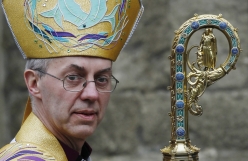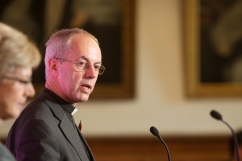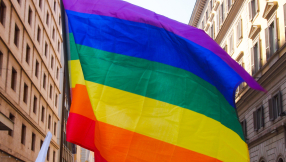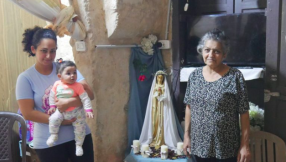
Inequality "plays on the corruption of the human person [and] our sinfulness" Justin Welby said during a conference in New York yesterday.
The Archbishop joined American blogger and author Rachel Held Evans, the Bishop of Panama, Rt Rev Julio Murray, and editor of First Things magazine, R.R. Reno, on a panel at the Creating the Common Good conference.
During his opening speech Welby asked whether inequality really matters, suggesting that dealing with it "in terms of economics alone or in a polemical style in which one simply raves on about the bad effects" does not solve anything.
"So what if there's inequality? There has always been inequality and there most certainly always will be inequality," he said.
"This is not just a quick lapse into an approach much influenced by Darwin, that affirms the solutions for our society are about survival of the fittest and devil take the hindmost... but a genuine question in terms of a world deeply caught up in diversity, to the world's great benefit."
Describing a stained glass window at Canterbury Cathedral that shows Adam digging in the Garden of Eden, Welby said the creation story reveals an innate equality bestowed upon us by God.
"Hierarchy is deeply embedded, but the Adam and Eve story, the story of the Garden, has constantly come back to capture the imagination of those who see that in the creation of God there is equality," he said.
"And at the heart of the Genesis story of the creation of human beings is the essential nature of the human being, both male and female, existing to know God intimately and to walk intimately with God.
"There is an equality of worship, in adoration of the presence of God; there is an equality of revelling and feasting in fellowship with God in the Garden. Equality is a gift in creation, it is the foundation of equality before the law, equality of voice in the public square, equality in righteousness."
However, Welby added that wealth is often accepted as a blessing in the Old Testament, though there is also a "fear about its consequences".
"The tensions of inequality run through it [the Old Testament] from beginning to end," he said.
He considered the example set by the early Church, where "there is prophetic and charismatic authority, but no right to be rich".
"The Eucharist in its thanksgiving includes thanksgiving for the new community in which needs are met, poverty ended and the just rule of God is seen. And James hits hard at the wealthy who don't share their wealth and at the business people who don't depend on God," Welby said.
"It is absolutely clear that the origins of Christian prophetic life from the moment of the incarnation forward carried a challenge to inequality... There is a biblical injunction against the systematic and indefinite accumulation of grossly unequal societies."
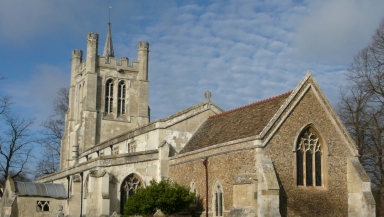
Though he praised the philanthropy of wealthy individuals such as Bill Gates and Warren Buffet, Welby said that ultimately inequality "stands against the equality of access to God in worship and fellowship".
"It is a problem because it plays on the corruption of the human person, our sinfulness, to create power grabs, patrimonialism by the powerful, self-serving not foot-washing," he said.
But Welby ended his remarks with a message of hope. "It is an issue which is in the hands of God. And in his hands, with our repentance, it is an issue that is changing; it will change," he said.
"The God who met us in Jesus, the God who raises Christ from the dead, changes everything. We are today not in a place of menace and danger; but because we are increasingly conscious of inequality, we are in a place of hope and opportunity, and we are in a place where the church, in the grace and the providence of God, holds within its hands the beauty of opportunity that can change our world, liberate the enslaved, create the conditions of human flourishing, bring in the common good."
His comments follow the publication this week of a collection of essays edited by the Archbishop of York John Sentamu, in which both archbishops write about the problem of inequality in Britain.










